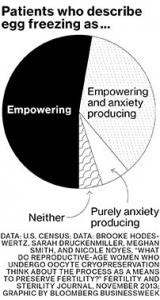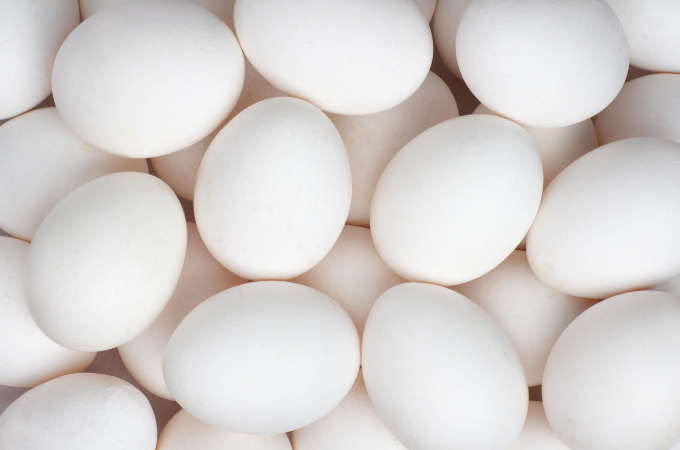On April 17, 2014, Emma Rosenburg of Bloomberg Businessweek provided an in-depth overview of egg freezing: Who are the women freezing their eggs, what are the benefits, and why has there been such an increase?
“Not since the birth control pill has a medical technology had such potential to change family and career planning.” Oocyte cryopreservation, more commonly known as egg freezing, is an increasingly popular option empowering women to balance both career and family. The cover of Bloomberg Businessweek called it “A new fertility procedure gives women more choices in the quest to have it all.” Read the full article.
The Quest to Have it All

Women freeze for various reasons. The decision for Emily, a 35 year old who works in investor relations at a Wall Street reinsurance firm, was prompted by a recent breakup and hectic work schedule: “I do what to have children eventually, but I’m traveling all the time, and dating in New York is hard. I don’t want to marry someone just so I can get pregnant.” No longer feeling guilty dedicating the majority of her time to work and being able to date without the feeling of desperation to have a baby ASAP, Emily described her experience as empowering. According to the study, the majority of women felt empowered by freezing.
Women are taught ‘that you create your career, and everything else falls into place’ however many have quickly learned it isn’t that easy. Several women were interviewed for the article, each with prestige and the hopes of having a family in the future. One woman explained her situation and the decision to freeze as this
“I didn’t intentionally delay having children nor plan to get a divorce. My life and my fertility veered off course. Freezing my eggs bought me time and the possibility to have a child in the future. It’s not a sure thing, but a gamble I am willing to take.” Brigette Adams, age 39, Marketing Executive
Bloomberg Businessweek discusses how the stress for women choosing career over family, or family over career, is not uncommon. Since the 1970s, the number of women having babies between the ages of 35 and 39 has increased 150 percent, according to the Center for Disease Control and Prevention’s National Vital Statistics Report. With the increase of age, having children becomes more challenging. Fertility potential or ovarian reserve is dependent on the quality and quantity of a woman’s eggs. Typically, a woman’s fertility is still near its peak until the age of 35 decreasing to nearly zero by the age of 40. More women are working and have advanced degrees and positions in the work force – but don’t have more time to have children. Egg freezing affords women the opportunity to achieve career and family dreams, without sacrificing either – the quest to have it all.
Next Steps
- Talk with an Egg Freezing Patient Liaison: 1-877-411-9292
- Schedule an appointment
- Learn About Egg Freezing Financial Options





